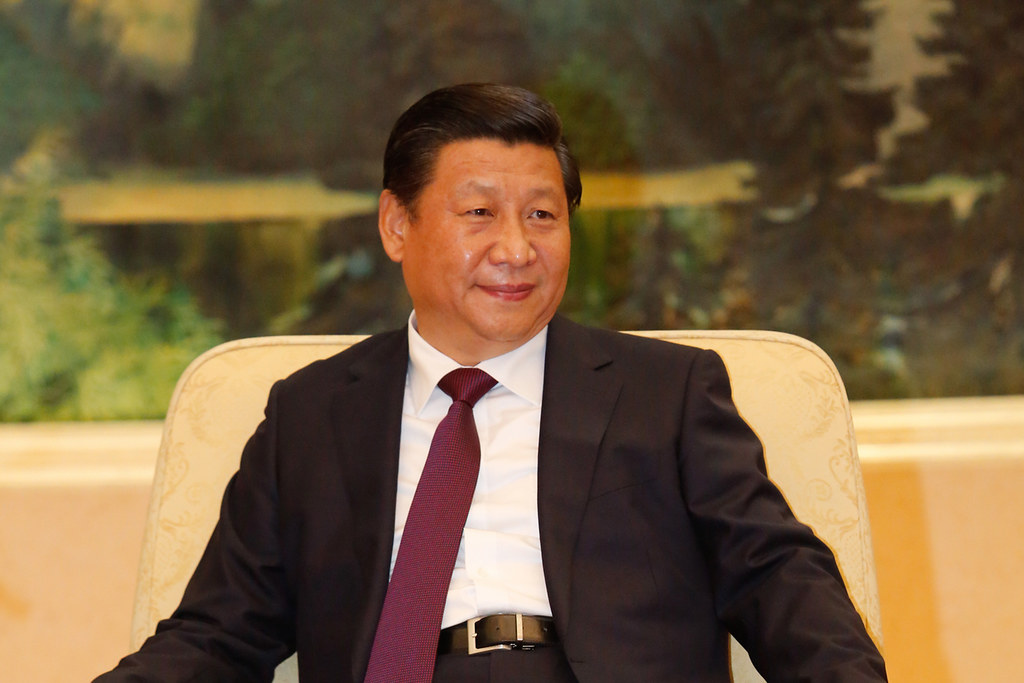What will change with Xi’s visit to Saudi Arabia for the US and the Middle East

Xi's visit to Saudi Arabia symbolizes China's desire to matter more in a region under the US's sphere of influence. The deepening of the Financial Times
President Xi Jinping will visit Saudi Arabia for the first time in six years this week as part of efforts to strengthen China's relationship with the Gulf region, five months after the United States warned Beijing it would not back down the Middle East neither to them nor to anyone else. Writes the Financial Times .
Xi will meet King Salman bin Abdulaziz al-Saud and Crown Prince Mohammed bin Salman, the current ruler of the kingdom, in Riyadh and participate in two summits with Arab and Gulf leaders. Neither side has provided details on the Chinese leader's meeting with the Saudi royals, but the two countries could sign a cooperation deal ranging from free trade to nuclear energy.
The Chinese president's visit, which comes as he faces mounting pressure at home over opposition to his "zero Covid" strategy, underscores China's desire to strengthen ties in a region traditionally viewed by Washington as within its sphere of flu.
US President Joe Biden's message to Arab leaders meeting in Riyadh in July was: “We will not leave and we will not leave a vacuum to be filled by China, Russia or Iran. The United States is going nowhere."
However, relations between Biden and Crown Prince Mohammed are tense. And despite the president's pledge to stay, in the Gulf it is believed that the United States has drifted further away, shifting attention to other regions, and that China is among the players most eager to fill any void.
“Everyone thinks the United States is dying out,” said Gedaliah Afterman, an expert on China and the Middle East at the Abba Eban Institute for Diplomacy and Foreign Relations in Israel. In the strategic battle between Washington and Beijing, "every 10 meters [China] manages to move the Saudis in their direction is not just a victory, but a double victory, because they move away from the United States," he added.
Gulf officials, however, are wary of getting involved in any disputes between China and the United States, knowing they must maintain relations with the pair.
Both Saudi Arabia and the United Arab Emirates count on Washington as a supplier of military hardware and protection. US hardware would be nearly impossible to replace with what China offers.
However, this hasn't stopped Saudi Arabia and other Gulf nations from approaching Beijing to cooperate in trade, technology, and even ballistic missile and weaponized drone technology.
Nissa Felton, senior manager at consulting firm Janes IntelTrak, said that while China currently poses no threat to the US' historic role as a regional security provider, "increasing political ties, both at the top , whether exercised through votes in international organizations such as the UN or the pursuit of joint strategic initiatives … is potentially problematic for long-term US interests.”
"This broader cooperation — a willingness to synchronize China's foreign policy with their domestic agendas — signals an openness to diversifying these countries' traditional relationships with the United States."
At home, Xi faces widespread distress over the severe economic downturn and growing opposition to his policies, which escalated into protests late last month in several major cities. "Xi Jinping needs to divert attention due to domestic dissatisfaction," said Willy Lam, an expert on China politics at the Chinese University of Hong Kong.
According to Janes IntelTrak data, Saudi Arabia topped the list of Chinese foreign investment destinations announced in the Gulf region over the past 20 years, totaling $106.5 billion, ahead of Kuwait with $97.6 billion. billion dollars and the 46 billion dollars of the UAE.
Relations between Beijing and Riyadh are underpinned by oil. Saudi Arabia is China's main supplier of crude oil and China is the kingdom's largest trading partner.
Oil looms over this week's visit, which coincides with an important OPEC+ meeting, the deadline for Europe to impose an embargo on Russian crude and the possible introduction of a price cap. price of Russian oil.
But in recent years, China's relations with the Kingdom and with other Gulf countries have gone beyond oil , especially as regards technology, which the United States has sometimes opposed.
This cooperation, especially on Huawei's 5G technology, worries the US administration, as does the prospect of allowing China security facilities in the Gulf. Last year, the UAE shut down a suspected Chinese military facility in the country after objections from the United States.
“There are certain partnerships with China that would create a limit on what we can do,” Brett McGurk, the Biden administration's top Middle East official, said at a conference in Bahrain last month.
The United States has agreed with Saudi Arabia to work on 5G technology, but the kingdom is still pursuing its cooperation with Huawei. The US has also been alarmed by speculation that Saudi Arabia could sign a deal with China to settle oil transactions in renminbi.
Saudi government officials have privately advised that any such deal would not include oil transactions, which are conducted in dollars, but would extend to other sectors. A senior Saudi official said he was unaware of any renminbi trade deal being agreed this week, but that there would be no harm in doing so.
(Excerpt from the press release of eprcommunication)
This is a machine translation from Italian language of a post published on Start Magazine at the URL https://www.startmag.it/mondo/xi-jinping-arabia-saudita-visita/ on Wed, 07 Dec 2022 08:36:14 +0000.
